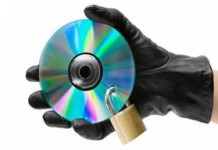
That’s the title of an article by Robert Darnton in The Chronicle of Higher Education. Darnton is a professor and university librarian at Harvard University.
Here’s a snippet:
True enough, but misleading. In 10, 20, or 50 years, the information environment will be overwhelmingly digital, but the prevalence of electronic communication does not mean that printed material will cease to be important. Research in the relatively new discipline of book history has demonstrated that new modes of communication do not displace old ones, at least not in the short run. Manuscript publishing actually expanded after Gutenberg and continued to thrive for the next three centuries. Radio did not destroy the newspaper; television did not kill radio; and the Internet did not make TV extinct. In each case, the information environment became richer and more complex. That is what we are experiencing in this crucial phase of transition to a dominantly digital ecology.
I mention these misconceptions because I think they stand in the way of understanding shifts in the information environment. They make the changes appear too dramatic. They present things ahistorically and in sharp contrasts—before and after, either/or, black and white. A more nuanced view would reject the common notion that old books and e-books occupy opposite and antagonistic extremes on a technological spectrum. Old books and e-books should be thought of as allies, not enemies. To illustrate this argument, I would like to make some brief observations about the book trade, reading, and writing.
Thanks to Michael von Glahn for the heads up.


































Though it’s true that the emerging technology did not eradicate the old technology, in each case it forced a major transformation in the way the old technology did business. Handwritten manuscripts gave up much of their “elite” status, and became available to anyone who could afford it; but slowly, their production shrank over those centuries to almost nothing.
Newspapers emphasized greater depth in reporting, their strength over radio, while at the same time ceding much of the entertainment market to radio (and then applying critics to the entertainment). In time, newspapers have lost major market share to radio and TV, and seem to be made up of more ads than news at times.
Radio originally thrived on live radio plays and broadcast theatre shows, but lost that market to TV, and had to switch to syndicated music and sound-bite news to survive. The interactivity of the Internet is forcing TV to squeeze ads onto the screen with programs, add Web link pop-ups and compressed media in the periphery to simulate a browser experience.
So we can expect ebooks to impact the print market significantly. Changing sales profiles is only the beginning; we should expect print repackaging, layout changes and connections to online content or included digital files… in fact, printed magazines are already showing the way in those areas.
I agree that we shouldn’t expect print to vanish overnight. But one other difference between those other technologies and print, the fact that we need trees more than we need paper and paper-filled landfills, should accelerate the decline of the printed book and magazine at a faster rate than previous bypassed technologies.
This is a piece of utter nonsense, based on inaccurate assumptions built on inaccurate facts.
” .. new modes of communication do not displace old ones, at least not in the short run”
Duh … what exactly is ‘the short run’ ? So make up your mind ‘Professor’, do they or don’t they ? Answer .. waffle and more waffle.
“Radio did not destroy the newspaper; television did not kill radio; and the Internet did not make TV extinct”
Have we not heard enough of this nonsense ? Why would radio destroy the newspaper ? they are completely different media communicating completely different content. The same with TV/Radio … completely different content. The same with Internet/TV. This cliche’d analysis is old, tired, lazy and vacuous.
The transition from paper books to eBooks is completely different from those silly comparisons. The key issue is that the content remains exactly the same, in contrast to those cases. Reading War and Peace on my Kindle delivers exactly the same content in exactly the same format as the paper book. Reading No Highway on my Kindle does the same. The only difference is the media.
‘Professor’ Darnton’s article is nothing more that tabloid fodder. He sets up 5 non existent ‘Myths’ and then offers glib, tabloid style, dismissals.
And this guy thinks there is and will be more paper books than ever before ? Oh please !
@Howard: “Why would radio destroy the newspaper ? they are completely different media communicating completely different content. The same with TV/Radio … completely different content.”
At least in this case, he’s not talking about hypotheticals, since those are both actual historical examples. In the 1930s, there were genuine fears in American print media that broadcast journalism would do in newspapers by providing the same current events content over-the-air free of charge, to the point where it was years before some newspapers printed broadcast schedules. Likewise, when TV was the emerging technology in the 1950s, radio was already offering the same types of comedy and drama programming (in many cases, with the same shows and stars), just without the pictures. For Darnton’s purposes, TV vs. movies would be a better comparison, since Hollywood was extremely paranoid about playing nice with video for several years.